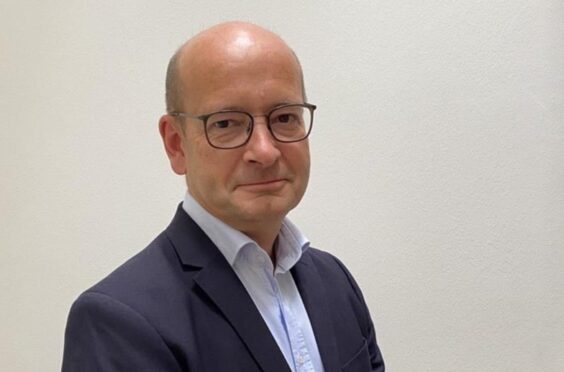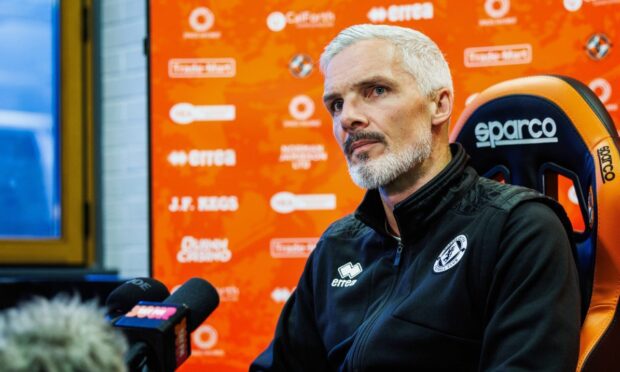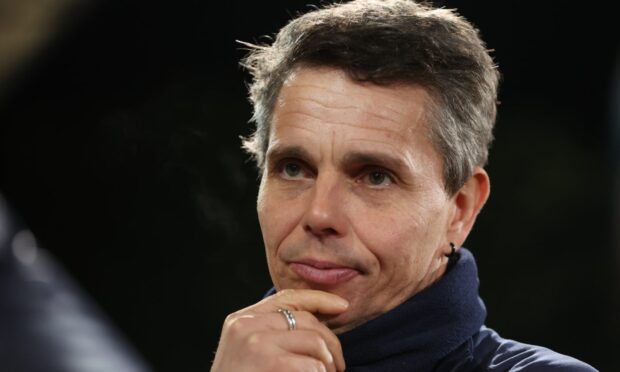In the world of business, ethical integrity is crucial for success, particularly in the gambling industry, which often grapples with a challenging reputation.
-
Some Courier online content is funded by outside parties. The revenue from this helps to sustain our independent news gathering. You will always know if you are reading paid-for material as it will be clearly labelled as “Partnership” on the site and on social media channels,
This can take two different forms.
“Presented by”
This means the content has been paid for and produced by the named advertiser.
“In partnership with”
This means the content has been paid for and approved by the named advertiser but written and edited by our own commercial content team.
As a professor of ethics and the CEO of iGaming.com, a leading affiliate marketing company, Prof. Dr. Andreas Ditsche is uniquely positioned to address these challenges. This interview explores how embracing responsible gaming and sustainability is not just righting past wrongs but paving the way for a prosperous future in the industry.
The gaming industry is at a crossroads with responsible gaming and sustainability shaping its future. Could you start by explaining what responsible gaming means in today’s context?
Responsible gaming, today, is about creating a safe and ethical environment where gambling is enjoyed as a form of entertainment that’s free of harm. This involves tools for self-regulation, transparent customer communications, and protocols to help reduce harmful gambling behaviour. Technologies like AI are now being used to track playing habits and intervene when risky behaviors are detected.
Can you share some examples of successful initiatives that exemplify these practices?
The industry has implemented a system where players can set their own limits on time and money spent daily, weekly, or monthly. Another initiative involves using AI to spot problem gambling behaviors and provide immediate assistance.
Shifting our focus to sustainability, how is it defined within the gaming industry, and what sustainable practices are companies adopting?
Sustainability encompasses environmental, social, and economic dimensions. For instance, reducing carbon footprints and ensuring fair labor practices.
At iGaming.com, we work remote-first with employees across the globe. This minimizes our carbon footprint. We only operate in regulated markets with licensed operators, which fosters social sustainability. Furthermore, we balance salary levels globally. For us, running a profitable business is also a matter of sustainability because we have the responsibility for safe job for more than 300 employees.
How do these sustainable practices benefit the companies?
Adopting sustainable practices isn’t just ethically right, it’s economically smart. Companies must be sustainable to attract talent. Improved brand loyalty by aligning with the values of a customer base that considers ethics, responsible gambling and sustainability in its decisions is a must for business success. It also mitigates regulatory risks and prepares for a tighter regulatory future.
Looking ahead, what are the emerging trends in responsible gaming and sustainability that you anticipate will shape the industry?
The future is heading towards more integrated, responsible gaming systems where digital platforms can offer real-time interventions. The integration of these practices will become more seamless and user centric. Offering direct support for problem gamblers will be a key success factor for gambling operators and even affiliates.
In the next 5 to 10 years, how do you see these integrations evolving?
The evolution will likely be driven by both technological advancements and regulatory changes. We might see legislation requiring more stringent responsible gaming measures and greater accountability in sustainability. This will push the industry towards more innovative solutions that ensure compliance and enhance user engagement. The industry will make a transition from obeying rules to avoid problems to discovering responsible gambling and helping players as a key element for brand building and attracting customers. Putting the focus on responsible gambling and player protection will be a competitive advantage, especially for affiliates.
How can affiliates use responsible gambling to their advantage?
Affiliates attract potential players to their websites and suggest online gambling operators to them. Already at this point, affiliates can ensure that, before they select an operator, potential players are fully aware of the risks of gambling, understand responsible gambling and know where to find help if needed. Affiliates can build trust when they even offer psychological support and legal assistance. Don’t get me wrong. Affiliates are for-profit organizations. All this also helps them to get recurring visitors to their websites. To stick to the gambling jargon: this is a win-win situation for everyone.
Lastly, what role do you believe regulation will play in these areas?
Regulation will be crucial in standardizing practices across the industry. It will ensure that all players adhere to a minimum standard of responsibility and sustainability, making the industry safer and more robust. The aim is to foster an environment where innovation thrives within the boundaries of ethical practices.
What is your personal view on regulation? Does it really help protect players?
Regulation protects players when they play in the regulated market. The regulation in the United Kingdom is a success story. According to industry numbers, less than five percent of the online gambling market is black. This is remarkable because the internet does not have borders. According to industry insights, which vastly differ from the numbers the regulator presents, Germany is an example of a partly failed regulation. In Germany, around 60 % of the players play in the unregulated and unlicensed market. This means, 95 % of UK players are protected by regulation, but less than half of the German players are.
Why is the black-market share in Germany so much bigger than in the UK?
The main reason is the attractiveness of the regulated market. When a player finds attractive offerings in the regulated market, this is where he will play. If the regulated market is not attractive, the player will go somewhere else. This refers to registration requirements, depositing limits, spin limits, waiting times between games and the choice of games.
Can we achieve more responsible gambling with stricter regulations?
The question is what works better. Repression, regulation and legal actions or making the offering of the regulated market attractive enough for players so that they do not take the risk of going to the black market to find what they prefer. I believe in an attractive regulated market with clear rules, educated players and a good product offering.
Thank you for your insights today. It’s clear that responsible gaming and sustainability are not just trends but essential pillars for the future of the gaming industry.
Andreas: Thank you. It’s an ongoing journey, and we are committed to leading by example, ensuring that we move the needle toward a more responsible and sustainable future in gaming.











Conversation